Well known for his ultra trail running, Do Trong Nhon recently completed a 100k road challenge raising around USD30,000 for Operation Smile. Here he talks to us about his motivation, the relative difficulty of ultra road vs trail, avoiding injury, the importance of supporters and much more.
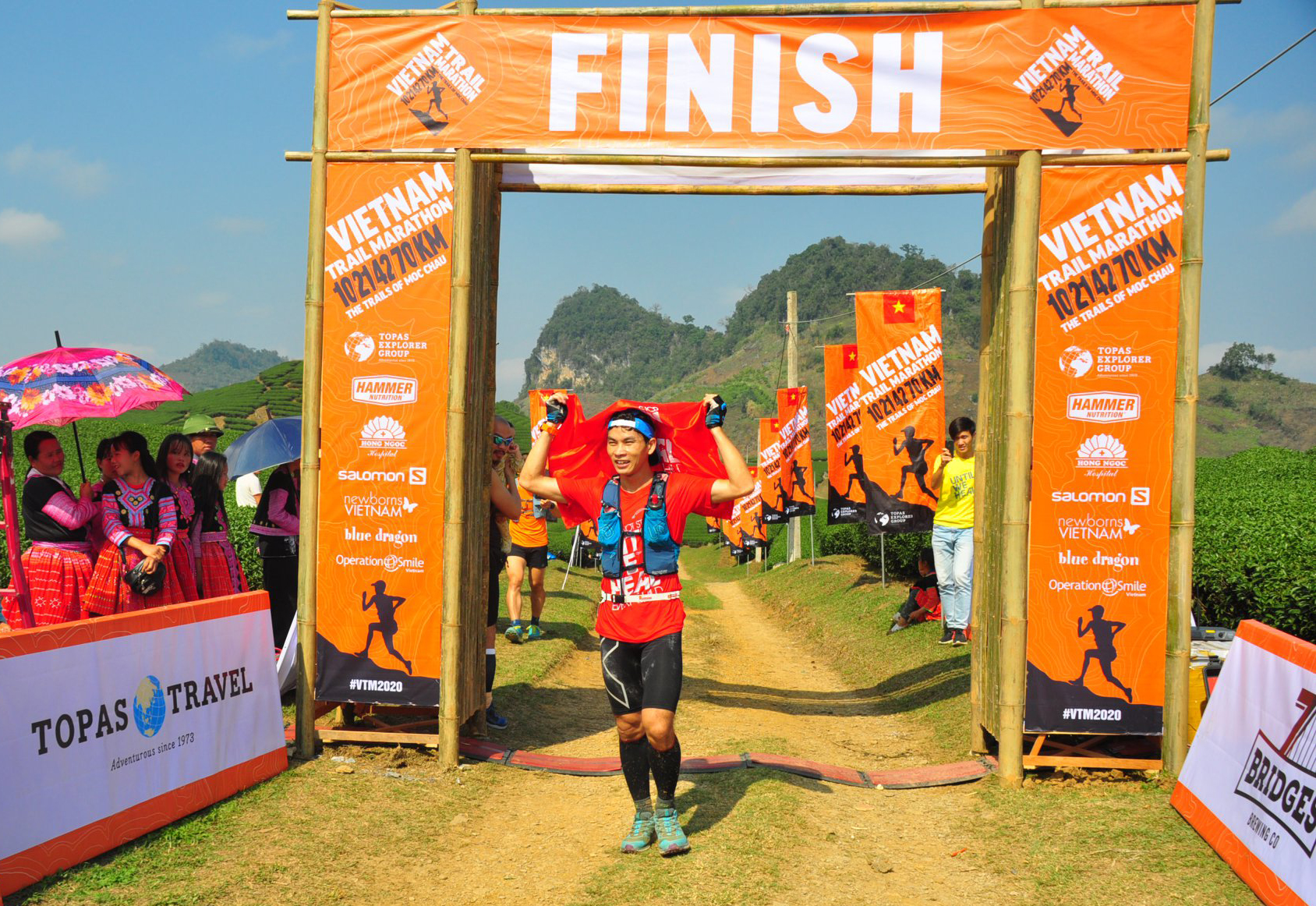

First of all, huge congratulations on finishing 100k at an average pace of 5:24 / km. A lot of our readers would be very happy to maintain that pace for just 5km. Looking back, how do you now feel about your performance?
It was very exciting, challenging, and required a lot of hard work, determination, and trade-offs. I was overwhelmed with emotion and of course, great happiness. I still have those feelings when thinking about Project RUN100.
What motivated you to run this 100k challenge and to run it for Operation Smile?
I came up with the idea of a challenging 100km at the end of September, when there was the news about the hard lockdown in Ho Chi Minh City ending soon. At first, it was just a goal to motivate myself to get back to training after almost 5 months in lockdown.
After seeing the before and after surgery pictures of a child at Operation Smile’s booth at VTM 2020, I had always wanted to help such children to have a chance for a new life. That is why I chose to run for them and run for Operation Smile.
The target 8h30 was arrived at by calculating my easy running pace of 5:00-5:05. I wondered: for how long I could maintain this easy pace?
More generally, what motivates you to run and in particular to run long distances?
With running, I find myself changing every day, both physically and mentally. I become stronger and fitter, and rarely get an ailment. I am also calmer, more disciplined, and happier, with a more diverse view on things. I have made many new friends and have had opportunities to broaden my experience. I think I have got more energy and enriched my life and work.
As for long distance running, especially with ultra distances, I always find quiet moments during the run. At those times, I think about many things that happen around me. Reflecting on myself after these long runs is the most wonderful thing to do.
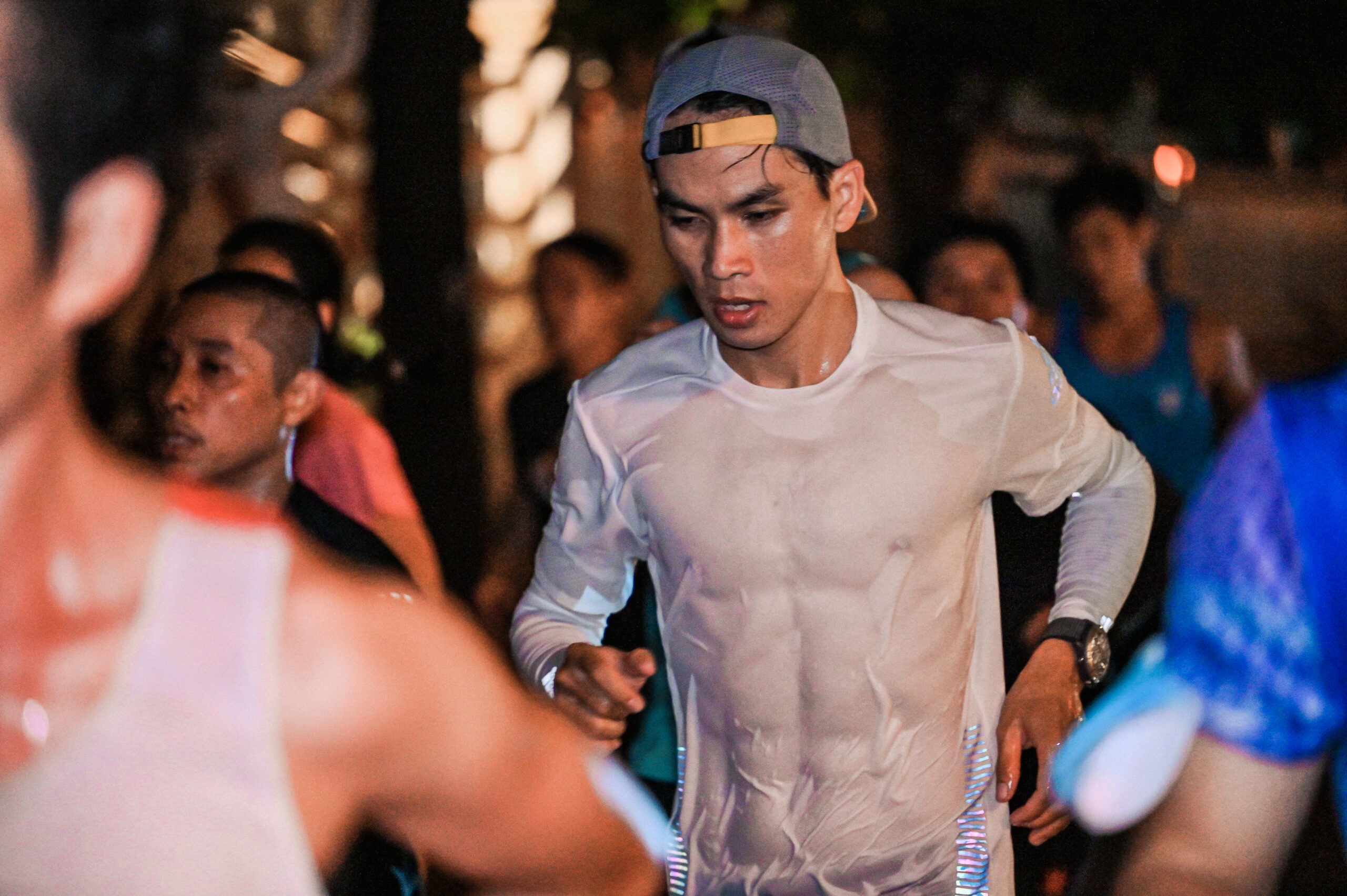

100k on the road is a very different prospect to 100k in the hills. Simply walking 100km over mountains would perhaps be harder than walking that distance on flat roads, but we expect 100k at 5:24 pace was harder than a 100k mountain race? Is that true and if so, please explain why.
I am very positive that running an ultra road is much harder than running an ultra trail. Here is why:
- You cannot allow yourself to walk during the run. Actually, of course, it is up to you, but for a good result, you should not.
- Due to no changes in the terrain, certain body parts must work continuously and become overloaded, including the calf, the arms, the shoulders, the hips, the glutes, knee joints…
- On the trails, you can regularly change from running to climbing and walking, and therefore, the different muscles are used alternatively and have time to recover.
We know you had four pacers. How did you select them and how did they help?
Originally, I had 4 pacers, including Thoa, but at the very last minute, she was positive for Covid-19, so I decided to have Doan Ngoc Hoang as her replacement. I had never trained with him, but I have met him at many races and have been impressed with his performances.
All the pacers were equally important. Their running knowledge, experience and skills alongside their characters motivated me a lot.
The biggest support to me was that I saw in their eyes they believed I would finish no matter what.
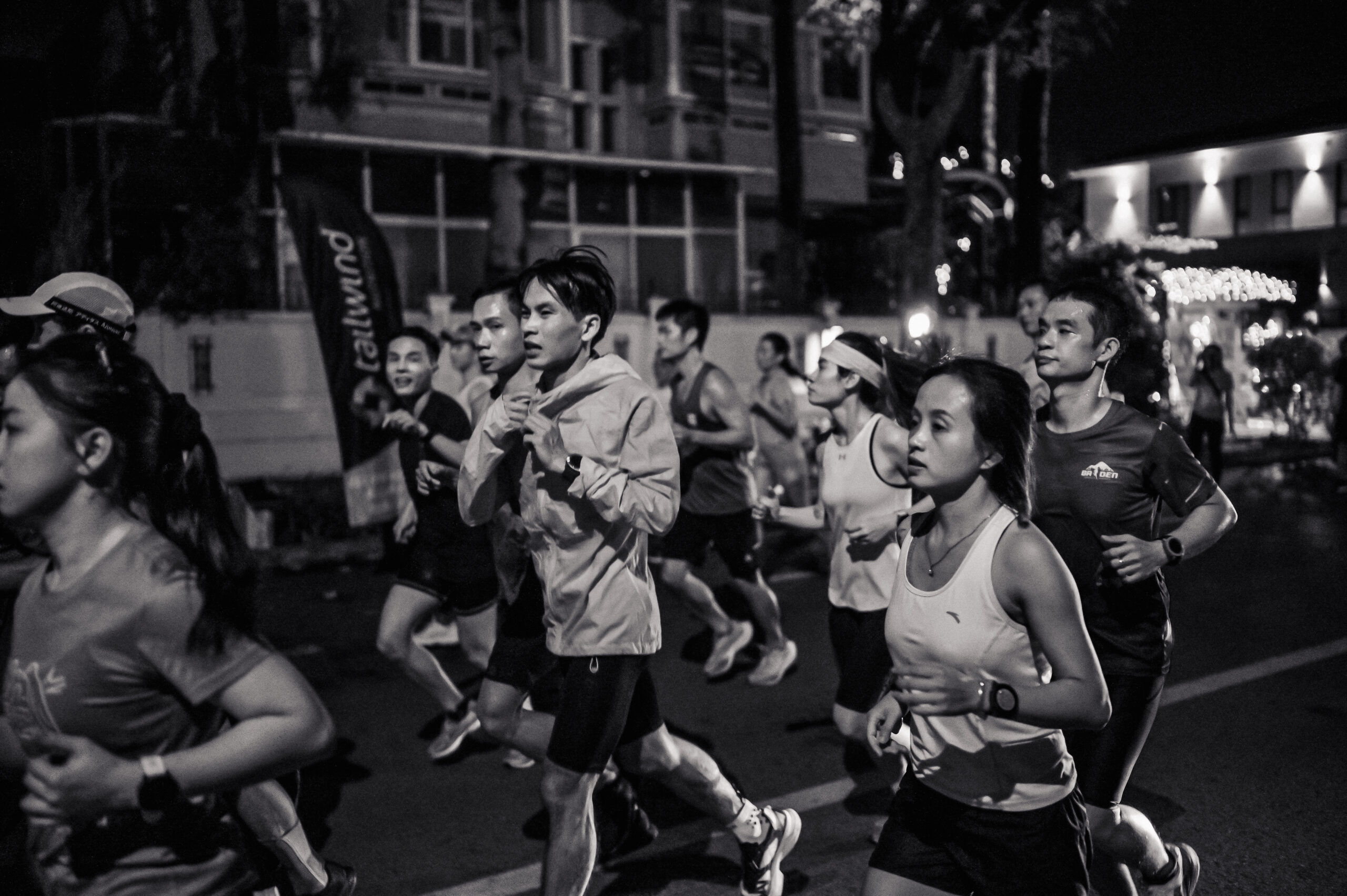

Besides the help of the pacers, do you have any internal strategies for overcoming the hard moments? For example mantras or other things you say to yourself to keep going when things get very tough?
Before stepping on the start line, besides the strategies regarding speed, water supply, nutrition, clothes, weather….choosing the final target is the most important thing to do, as it will decide if the run will be a success.
I had prepared myself for 3 scenarios:
- Finish in 8h20m
- Finish in 8h30m if something happens with the first goal
- Finish 100km with the best result possible if something happens with the first 2 goals
Clearly, I did not make those plans so I could negotiate with myself and accept failure. However, for difficult challenges like this one, as well as its charity purpose, you have to face a lot of pressure and need to be mentally prepared to overcome it instead of giving up half-way.
We know you were overcome with emotion at the finish. Can you describe those feelings and emotions?
I was totally overwhelmed with emotion the moment I reached 100km. At 89km, with 11km to the finish, my body was ready to give up at any minute, but my mind was still fighting.
The feeling of finishing it after more than 3 months of training and 9 most intense hours was so rewarding. It was even more touching to finish it with the congratulations of friends and the running community.
Your first marathon was quite recently – in 2018. You then won VJM 55k in 2019. For those runners transitioning to distance running from shorter races, can you describe how you built up your training in your first two years of running?
I believe many others have the same training process in the first 2 years of running.
In my first year, I trained for every step, from 100m, then 1km and then 2km… just like that, until I finished my first full marathon.
I was too hasty to challenge 42km without previously trying the 5-10-21km at races.
After the first full marathon there was a period of excitement and joining a lot of races, but without enough time for actual improvement. I increased the training intensity too fast which resulted in serious injuries.
In the second year, I became more patient thanks to researching a lot about running. My body had also improved after a year of training and racing. I was more cautious about choosing races, breaks, nutrition, and recovery. All the lessons were learnt from the previous failures and injuries. I came to understand that sport goes hand in hand with science, and that improvement takes time.
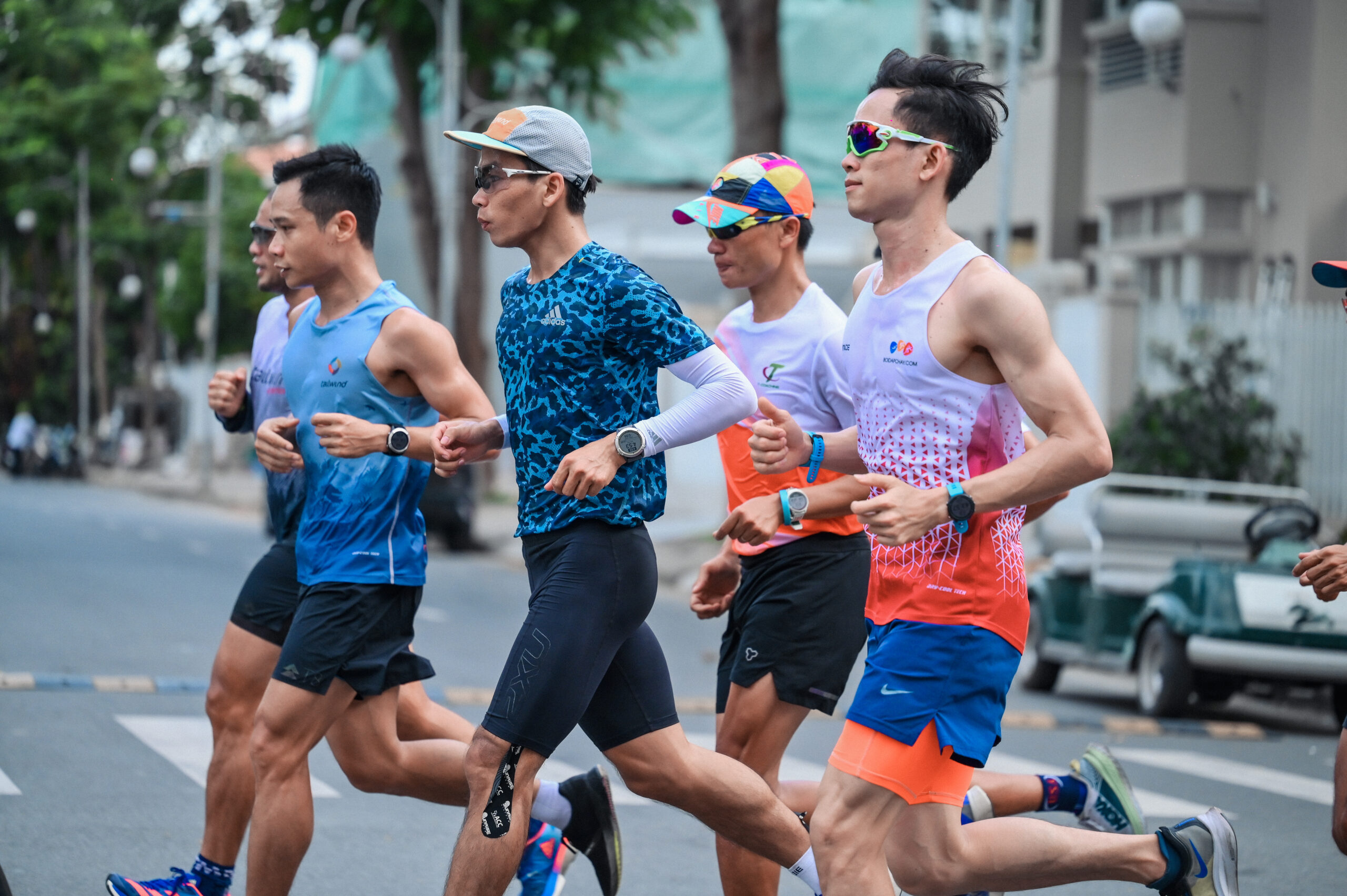

You had a 12 week training plan to build for the 100k. Can you give an overview of that training plan and the key training sessions within it?
My training plan for 100km Sub 8h30m
I made the training plan for 12 weeks: 103 – 110 – 110 – 123 – 135 – 160 – 160 – 123 – 165 – 140 – 103
- 4 weeks of Base: create the base after 3 months of “hibernation” under Article 16
- 1 week of Progress: slightly increase the training to evaluate the body’s endurance after moving to the next phase
- 4 weeks of Peak: increase the training load and intensity to the max, and 1 week solely focusing on the target of 100km with pace 5:06 continuously
- 3 weeks of Taper: slowly reducing the training load and putting the body in its best shape for the challenge day at the end of 12th week.
After I completed the plan, I discussed it with Quang Tran and took his advice, revising it to better suit my target as well as to ensure the ‘smart and effective’ training to avoid injuries.
You mentioned injuries in your first year, but it sounds like you are now able to run large volumes while avoiding injury – something many of our readers would love to be able to do. Do you have any advice for people regarding injury prevention?
Actually, I do suffer injuries. Everyone can get injured while playing any sport, and in running, injuries can potentially happen to different body parts.
In fact during my 3 years of training, I have suffered from 4 long-lasting injuries. The most serious one is ITBS (Iliotibial band syndrome) which cost me 7 months of 2021. I was very patient with my training to then recover.
My advice for everyone would be to be patient and listen to your body, know your capability before setting any running goals.
And lastly, build yourself a detailed training plan for every goal. You can then look back later and see what you have done right or wrong.
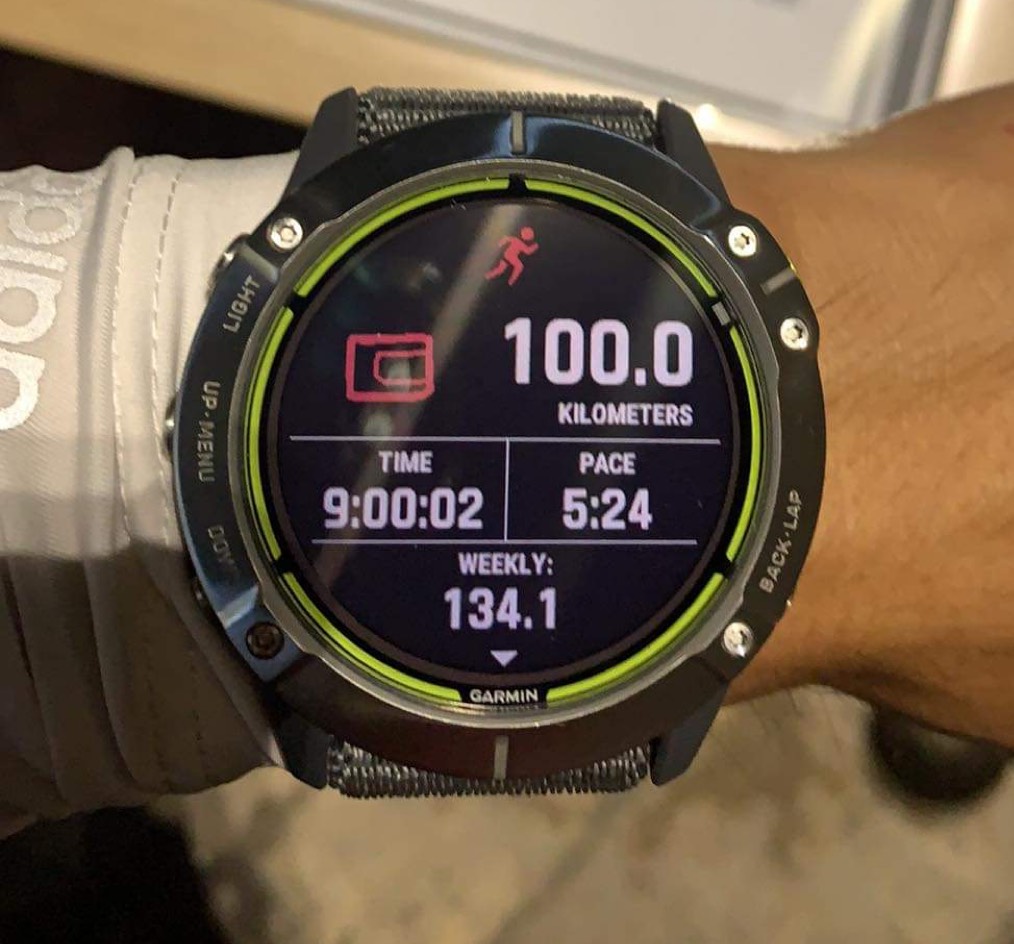

We know you planned to also auction the Garmin watch you used. Have you done so? If so, how did that go?
After finishing the Run100 challenge, I auctioned my Garmin Enduro and the winner was Ban Tran, an experienced runner who loves challenges just like I do. The final price was 46 million VND and it was transferred directly to Operation Smile’s bank account.
Lastly, would you ever do this again? And do you already have another challenge in mind?
I will get a new personal best for 100km distance in 2022, that’s for sure. The exact time will be confirmed once I get enough training.
There are a lot of other challenges waiting for me, which motivates me to move forward every day.
To read more interviews with runners, see our Q and A archive here.



